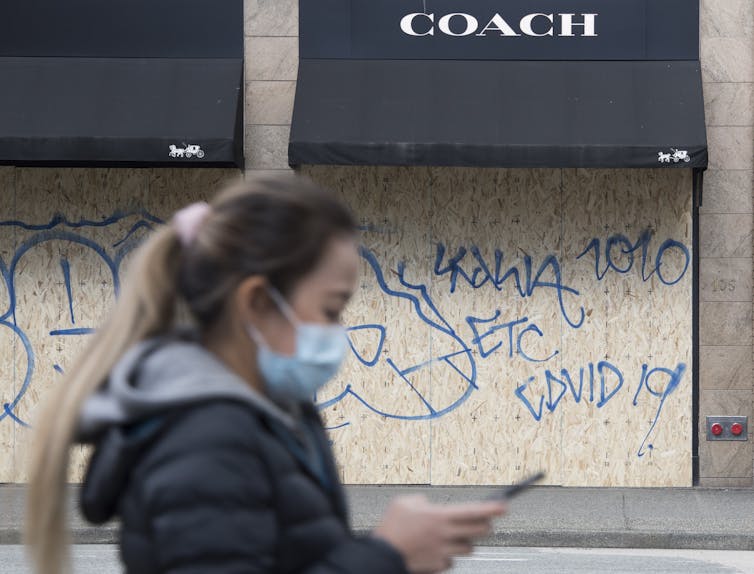
As financial markets collapse, investors are withdrawing funds from startups. Sales of anything beyond basic products evaporated, and progress in product development and market testing ground to a halt because of work requiring personal collaboration.
Many existing rescue plans are aimed at larger corporations in industries equivalent to aviation and tourism. Although limited, resources are clearly allocated for startups and other small enterprisesinvolve rigorous criteria and complex and slow application processes.
Many startups already operate without money reserves and lines of credit. Unlike larger, resource-rich corporations, startups are unable to make guarantees to avoid layoffs. This confluence of events signifies that startups and jobs inside them are being created they disappear and at a rate that likely outpaces job losses at larger, more established corporations.
Abrupt ending
CEO of the company a startup I’ve been working on for over two years was forced to chop costs by 50 percent at the request of a cash-strapped investor. He achieved this by cutting his own salary to zero, eliminating positions on the management and sales teams, closing the physical office and ending outsourcing contracts.
A few days later, its primary investor stated that these cuts were insufficient. The CEO considered alternative solutions, including reducing the skeleton workforce and searching for government funding to assist get through this era. His company fell into the trap of all rescue programs. Reducing staff would halt progress in product development and the ability to comprehend desperately needed sales.
(Tim Mossholder/Unsplash)
He closed the company 10 days after making the first round of cuts, leaving greater than 30 employees without jobs. It works with investors to supply former employees as much as a monthly severance package. He and one other member of the management team use WhatsApp and email, offering support to former employees as they work through the end of the organization and formulate plans that will help them enter the extremely demanding job market.
Just a few months before the virus hit, many employees were fearful whether the company would ever find a suitable place on the market. However, investors were willing to proceed investing to bring a fully developed product to market until the outbreak of the pandemic.
Acceleration of fall
Versions of this story are emerging in startups and small businesses around the world. Some people limp pay cuts, furloughs, layoffs and other cost-cutting measures. For many others, the coronavirus was the reason for their death.
Specific circumstances vary. Takeovers end in failure. Startups fail to realize product market fit. Their technologies never reach their full potential.
Funding for some startups could possibly be there it’s already drying. Other startups may have been on the road to closure for some time as the coronavirus simply accelerated the inevitable. We will never know whether the startups that failed could have survived under different circumstances.
Work for startups includes: a dangerous proposition for employees in the better of times. In the last 4 years, My team and I conducted over 200 interviews with job seekers, people working in start-ups and recruiters.
Work trade-offs for startups
Most of them are aware of the compromises inherent in working in a startup. They accept lower levels of stability, compensation, profession opportunities and resources in exchange for the opportunity to exert greater influence on the direction of the business and greater flexibility in their roles.

(Chip)
When asked what they might do if their organization failed, many responded that they might look for a similar role at one other startup.
Taking risks made sense in a thriving ecosystem where startups were struggling to seek out talent and finding a latest job often took just a few days. However, it is not clear how well transfer of startup experience to more established corporations. In tight labor markets, this may increasingly be valued. As hundreds of thousands of young people change into unemployed, the prospects for former startup employees will change into less brilliant.
It’s not the same for everyone
This is just one of many the explanation why the effects of the coronavirus have been uneven. The disease itself has not attacked jurisdictions, countries, continents, or demographic groups at an equal pace. The economic costs of dealing with the disease are not equal for communities that are already impoverished and those with deeper resources.
Jobs are also disappearing for people working in brick-and-mortar stores and restaurants, in addition to for many contract employees who rarely worked in the highest-paying and safest jobs to start with. Neither persistent negative effects a crisis that will probably be felt the same way by everyone.

THE CANADIAN PRESS/Jonathan Hayward
Some people still predict that after the pandemic there will be a renaissance with a wave of innovation that will result in the creation of recent startups.
Finally, the original Renaissance the Black Death occurred. Crises of many varieties can sow the seeds of innovation.
However, little is known about what the latest renaissance would seem like and who will profit from it.

